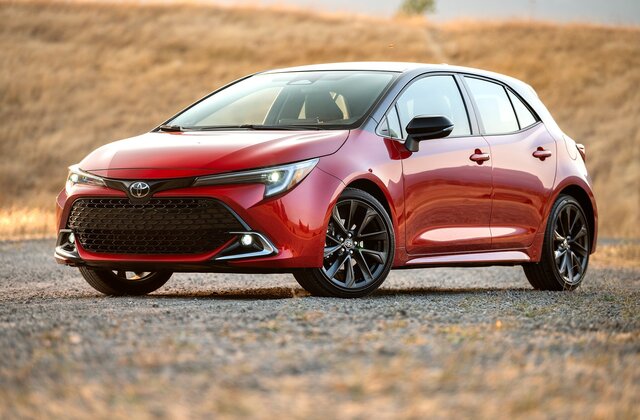A hybrid car is a vehicle that uses two or more power sources to move, typically an internal combustion engine and an electric motor. The engine and motor work together to optimize fuel efficiency and reduce emissions. The electric motor is powered by a battery that is charged through regenerative braking or by the engine itself.
On the other hand, a gas car, or a traditional gasoline-powered car, is a vehicle that runs solely on gasoline. These vehicles have an internal combustion engine that burns gasoline to produce power, which is then transferred to the wheels through a transmission system.
In general, hybrid cars are more fuel-efficient and emit fewer emissions than gas cars, but they also tend to be more expensive. Gas cars are still popular and widely used, but with increasing concerns about climate change and the environment, there is a growing trend towards electric and hybrid vehicles.
Difference Between Hybrid Cars and Gas Cars
Hybrid cars and gas cars are both vehicles designed for transportation, but there are significant differences between the two. Hybrid cars use a combination of gasoline and electric power to operate, while gas cars rely solely on gasoline. The differences between these two types of vehicles go far beyond just their power sources, so let’s explore them in more detail.
Fuel Efficiency:
One of the most significant differences between hybrid cars and gas cars is their fuel efficiency. Hybrid cars can achieve much higher fuel efficiency than gas cars because they use both gasoline and electric power. This combination allows hybrid cars to get more miles per gallon (MPG) than gas cars, making them more environmentally friendly and cost-effective in the long run. However, it should be noted that hybrid cars are typically more expensive to purchase initially than gas cars.
Engine Performance:
Gas cars typically have larger engines than hybrid cars, which means they can generate more power and provide a more exhilarating driving experience. Gas cars are generally faster and more powerful than hybrid cars. However, some hybrid cars are designed with high-performance engines that can provide an excellent driving experience.
Environmental Impact:
Hybrid cars are more environmentally friendly than gas cars due to their fuel efficiency. Hybrid cars emit less CO2 into the atmosphere, making them more eco-friendly. They also have better gas mileage, which means that they produce less pollution overall. Gas cars have a more significant environmental impact due to their reliance on fossil fuels and higher emissions.
Maintenance:
Hybrid cars and gas cars require different types of maintenance. Hybrid cars have more complicated systems because they have both an electric motor and a gasoline engine. This complexity can lead to more expensive repairs and maintenance costs. Gas cars are generally easier to maintain because they only have a gasoline engine. However, gas cars require more frequent oil changes and other maintenance tasks.
Cost:
Hybrid cars are typically more expensive to purchase than gas cars, but they may be more cost-effective in the long run due to their fuel efficiency. Gas cars are generally less expensive to purchase initially, but they may have higher maintenance and fuel costs over time.
Driving Range:
Gas cars generally have a longer driving range than hybrid cars, which means they can travel farther on a single tank of gas. Hybrid cars rely on a combination of gasoline and electric power, which means they have a shorter driving range. However, many modern hybrid cars have larger batteries and can travel longer distances on electric power alone.
While both gas and hybrid cars have their pros and cons, hybrid cars are generally more environmentally friendly and cost-effective in the long run. Gas cars may provide a more powerful driving experience, but they have a more significant environmental impact and can be more expensive to maintain over time. Ultimately, the decision between a gas car and a hybrid car will depend on individual preferences and needs.
Pros and Cons of Hybrid Cars
Hybrid cars, which combine a gasoline-powered engine with an electric motor and battery, have become increasingly popular as people look for more fuel-efficient and environmentally-friendly options. Here are some of the pros and cons of hybrid cars:
Pros:
- Better fuel economy: One of the main advantages of hybrid cars is that they are more fuel-efficient than traditional gasoline-powered cars. This can result in significant cost savings over time.
- Lower emissions: Hybrid cars produce lower emissions than conventional vehicles, which can reduce the impact on the environment and improve air quality.
- Regenerative braking: Hybrid cars use regenerative braking to convert the energy normally lost during braking into electricity, which can be used to power the electric motor.
- Reduced dependence on fossil fuels: Hybrid cars use both gasoline and electricity to power the vehicle, which can help reduce the dependence on fossil fuels.
Cons:
- Higher cost: Hybrid cars are typically more expensive than their traditional gasoline-powered counterparts. This higher cost can be a deterrent for some consumers.
- Batteries need to be replaced: Hybrid cars use batteries to power the electric motor, and these batteries will eventually need to be replaced. This can be an expensive repair.
- Limited electric range: Hybrid cars have a limited electric range, meaning that they can only travel a certain distance on electric power alone before the gasoline engine kicks in.
- Heavier weight: Hybrid cars are typically heavier than traditional cars due to the addition of the electric motor and battery. This can affect the vehicle’s performance and handling.
Pros and Cons of Gas Cars
Gas cars, also known as gasoline-powered cars, are the most common type of vehicle on the road. Here are some of the pros and cons of gas cars:
Pros:
- Widely available: Gasoline is readily available at gas stations throughout the country, making it easy to refuel your car.
- Affordable: Gasoline is generally cheaper than other types of fuel, such as diesel or electric.
- Long range: Gasoline-powered cars can travel long distances without needing to be refueled, making them ideal for road trips and long commutes.
- Quick refueling: Refueling a gas car is quick and easy, taking only a few minutes to fill up the tank.
Cons:
- High emissions: Gasoline-powered cars produce harmful emissions, which contribute to air pollution and climate change.
- Costly maintenance: Gas cars require regular maintenance, including oil changes and tune-ups, which can be expensive over time.
- Reliance on fossil fuels: Gasoline is a non-renewable resource, and its production and use contribute to environmental degradation.
- Poor fuel economy: Gasoline-powered cars are typically less fuel-efficient than hybrid or electric vehicles, resulting in higher fuel costs over time.











+ There are no comments
Add yours